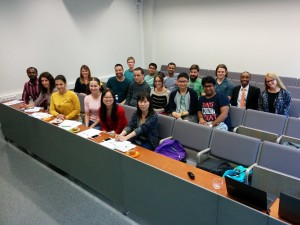 On Sept 07, 2015 Ivo Leito gave a presentation Using MOOCs for teaching analytical chemistry: experience at University of Tartu at the Euroanalysis XVIII (Bordeaux, France).
On Sept 07, 2015 Ivo Leito gave a presentation Using MOOCs for teaching analytical chemistry: experience at University of Tartu at the Euroanalysis XVIII (Bordeaux, France).
The presentation outlined the contents and organisation of the material in the on-line course Estimation of measurement uncertainty in chemical analysis, the ways of using it (for independent learning, for self-testing, as an information source and as a basis for running as a MOOC) and the experience of running it as a MOOC (Massive Open Online Course) at University of Tartu in spring 2014 and 2015. Part of the presentation was devoted to analyzing the pros and cons of MOOCs as a way of teaching and in particular as a way of teaching analytical chemistry (or its subdisciplines). It was concluded that MOOCs do have advantages, especially if compared to short training courses for practitioners. The talk created quite some interest and discussions after the session.
Detailed discussion of this topic has been published: I. Leito, I. Helm, L. Jalukse. Anal Bioanal Chem 2015, 407, 1277–1281.
The course material is available from https://sisu.ut.ee/measurement/



